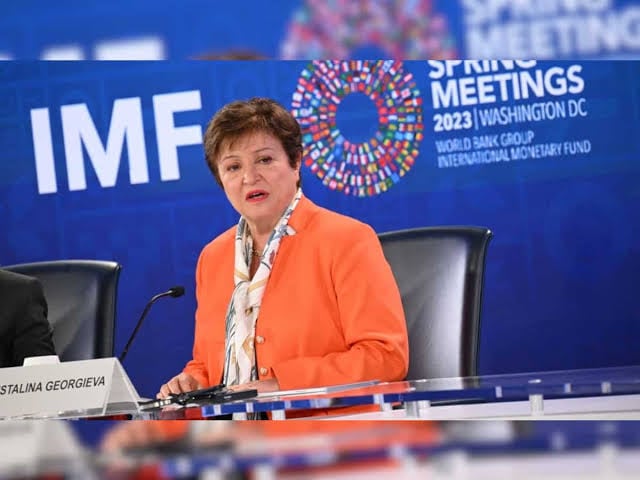IMF Chief Warns of AI Risks but Highlights Potential for Growth

The International Monetary Fund (IMF) chief, Kristalina Georgieva, warned of the potential risks of artificial intelligence (AI) to job security but emphasized the "tremendous opportunity" it offers to boost global productivity.
According to the IMF, AI could affect 60% of jobs in advanced economies and 40% globally, with a greater impact on higher-skilled positions. However, the report also notes that only half of the affected jobs will be negatively impacted, with the rest benefiting from productivity gains.
Georgieva stressed the need for low-income countries to embrace AI to catch up with the opportunities it presents. While emerging markets and developing economies may initially experience a smaller impact, they are less likely to benefit from enhanced productivity through AI integration.
On the still-relevant subject of inflation, the IMF's upcoming economic forecasts suggest that the global economy is on track to meet previous growth projections, but Georgieva cautioned against easing monetary policy too quickly or too slowly. She emphasized the need for a "soft landing" and pointed out that inflation while declining, is not yet fully tamed.
What Does This Mean For Me?
Georgieva expressed concern about the challenging fiscal year ahead, as countries grapple with debt burdens from the COVID-19 pandemic and depleted buffers. With 80 countries scheduled for elections this year, governments may face pressure to increase spending or cut taxes to gain popular support.
The IMF's main concern is that excessive government spending could undermine the progress made in fighting high inflation. If monetary policy tightens while fiscal policy expands, it could prolong the battle against inflation.
More News
.webp)
Japan’s Rate Shift Is Rippling Through Global Bond Markets
1 week ago

China’s Growth Engine Stalls as Consumers and Investors Pull Back
1 week ago

Egypt’s Recovery Gains Traction as Household Pressure Lingers
2 weeks ago

OECD Warns AI and Tariffs Will Test the Global Economy
3 weeks ago

Zero Tariffs, Higher Drug Bills as US and UK Reset Pharma Trade
3 weeks ago

Catastrophe Bonds Go Global as Climate Risk Meets Yield Hunting
1 month ago
.webp)
Canada Shields Steel and Lumber Industries From Tariffs
1 month ago

Trump Drops Selected Tariffs in Response to Inflation Pressures
1 month ago